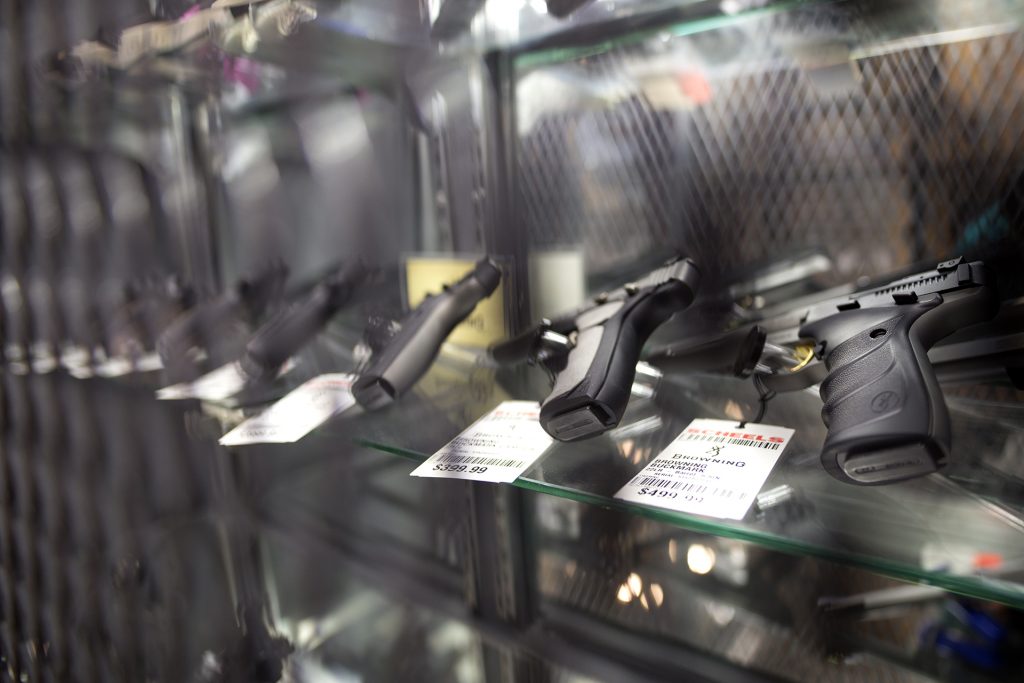Getting into specifics on firearms is impossible if we’re unwilling to believe the problem can be solved through federal policy.
Elijah Helton
elijah-helton@uiowa.edu
Better background checks. Longer waiting periods. Bump-stock and assault-rifle bans. These are some of the main policy ideas floated by politicians and pundits in favor of stronger gun control. It would be ideal if specifics could be debated back and forth, but the pro-gun side doesn’t often do that. Instead, it offers dismissals of the debate that scuttle any legislative action.
So let’s walk through some of these arguments in the wake of the most recent mass shooting on Feb. 17 — not Parkland — in which eight people were shot and one was killed during a gang-related shooting in Kansas City.
RELATED: Kumar: Gun-law gaps equal gun violence
‘We can’t outlaw evil. Those who want to kill will find a way.’
This is really just an argument against laws in general. No one’s saying there’s a magic policy that will prevent all gun deaths, but we can takes steps to clot the bloodshed.
Drunk driving used to be a much bigger problem in the United States. Around 35 years ago, there was a huge push to crack down on the potentially fatal practice. After generations of ad campaigns and better training for police officers, drunk-driving accidents went down.
Of course, there will always be crime with and without firearms, but we should at least try to lower the number of lives lost in our schools, churches, and movie theaters.
RELATED: Lee: America’s school-shooting epidemic will not solve itself
‘But Chicago has strong gun control, and it has the most murders.’
There’s several things going on here. First, this fails to take into account that the Windy City has the third-highest population in the country. Per capita, the homicide rate in Chicago is about one-third the rate of the most murderous city, New Orleans, where the gun laws are far more lax.
What’s more is that guns can be bought in another state and brought across the border. In the case of firearms in Chicago, about three in five of them come from a state other than Illinois and one in five come from Indiana, a bastion of pro-gun legislation. For any gun reform to be effective, it must be done at a federal level where every state complies with new laws.
RELATED: Helton: Gunshots ring out, GOP is silent
‘The Second Amendment guarantees the right to gun ownership.’
This one is better. As former Republican congressman Joe Walsh tweeted Thursday, “If you’re using the UK, Canada, or Australia as examples of #guncontrol, you’re missing one crucial fact: None of these countries afford their citizens a constitutional right to keep and bear arms.”
Walsh has a point. The Supreme Court has ruled that the Second Amendment guarantees firearm ownership for American citizens. This has been the case ever since, well, 2008.
The consensus among constitutional scholars used to be much different. Warren Burger, who served as Supreme Court Chief Justice from 1969 to 1986, was vocal about his opposition to gun rights as they are interpreted today. In a 1991 interview, Burger said this reading of the Bill of Rights was “one of the greatest pieces of fraud” he had seen in his lifetime.
As a country, we’ve added 27 amendments to the Constitution, including one in which the country banned alcohol and another in which the country unbanned it just 14 years later. The law can change, and refusing to debate any change on guns is a gross failure of governance.



